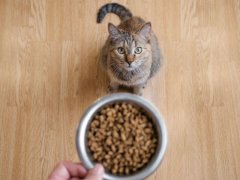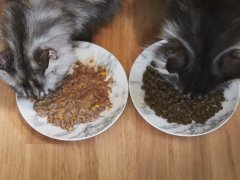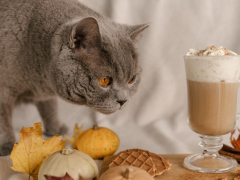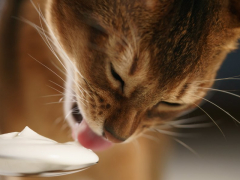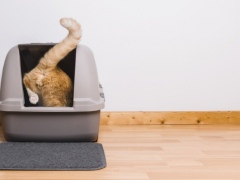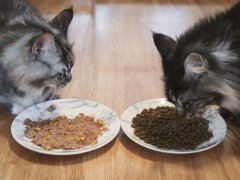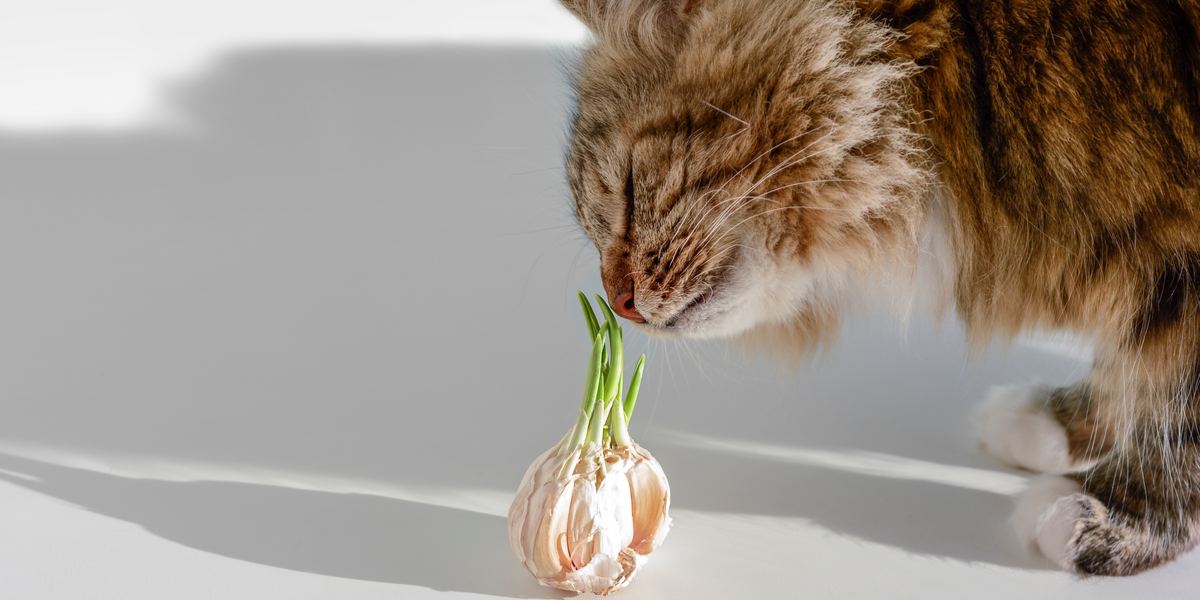
Garlic is a part of the Allium family, which also includes onions and leeks. It is used in many tasty dishes for humans (who doesn’t love garlic bread?), but garlic should be kept well away from our cats.
Some cats are interested in human food, and it can be tempting to let them share a treat with us, but you must be very careful which foods they try.
Is Garlic Bad for Cats?
Garlic is bad news for cats. As well as causing stomach upset, garlic also causes severe damage to the red blood cells carrying oxygen around the body. The red blood cells rupture, leading to life-threatening anemia. Cats who are suffering from anemia may be lethargic, pale, breathing rapidly, and may even collapse.
The symptoms may not be immediate; anemia can take a few days to progress to a point of causing visible signs. If your cat has eaten garlic you must seek veterinary attention immediately, even if you cat does not appear unwell.
This applies to all forms of garlic, including garlic powder, garlic tablets, dried, cooked, and fresh garlic.
How Much Garlic Is Toxic to Cats?
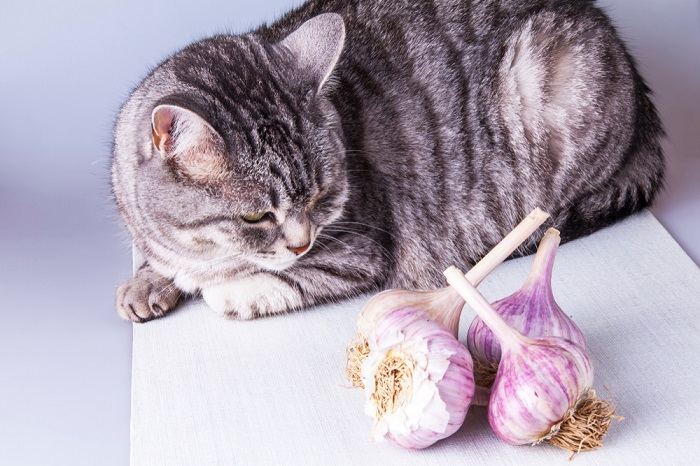
If you suspect your cat has eaten garlic, even a small amount, contact your veterinarian immediately.
although we know that garlic is known to be toxic to cats, the exact amount of garlic that is toxic to cats is not well established, but it is generally recommended that cats should not be given any garlic at and even small amounts can be dangerous.
Is Garlic Good for Cats?
There is a well-known myth that feeding garlic to cats and dogs can rid them of fleas. This is not true, and in fact, feeding garlic is harmful to cats rather than beneficial. There are no known benefits to feeling garlic in any form to cats.
Is Garlic Used in Commercial Cat Food?
Cats are carnivores and commercial cat diets usually reflect this by using a high proportion of meat and meat derivatives. It is unusual for fruit or vegetables to be a mainstay of a cat diet, as they are not well-digested by felines.
Garlic would certainly not be included in a commercial diet due to its toxicity to cats.
Do Cats Like the Taste of Garlic?
Cats are carnivores and are mostly attracted to meaty or fishy smells and tastes. They are not particularly drawn to plant materials as food.
However, cats are known for their curiosity and may take a taste of anything they might find, including leftover human food. For optimum safety, it is therefore recommended to keep any form of garlic away from your pets.
What To Do if Cat Eats Garlic?

If you suspect that your cat has ingested significant amount of garlic, the first thing to do is to contact contact your veterinarian immediately. Garlic contains compounds that can damage a cat’s red blood cells, leading to a condition called Heinz body anemia, which can be fatal if not treated promptly.
Eating garlic has a range of multiple risks for cats, even in small amounts. It is thought to be about five times as toxic to cats as onion is, which means that even small amounts can cause problems.
The main risks of garlic to cats include the following:
- Garlic contains organic sulfur compounds that cause damage to the red blood cells, causing them to rupture. This leads to anemia, which can be life-threatening. Symptoms can take a few days to develop, and include lethargy, pale gums, increased heart and breathing rate, and discolored urine (brown/red).
- Garlic can cause irritation and ulceration to the gastrointestinal tract. This can result in vomiting, diarrhea, drooling, and tummy pain.
- Garlic can cause heart problems by relaxing the heart vessel and dilating blood vessels, causing weakness and collapse.
These risks are serious ones. Eating garlic can lead to severe health problems for your cat.
